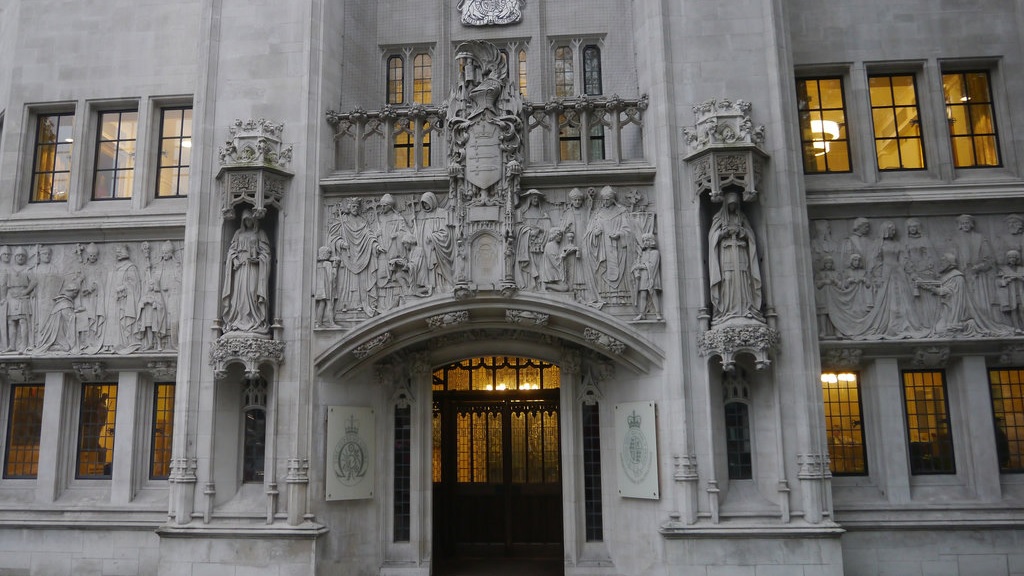High-value commercial and trust disputes often have an international element, and it is not always clear which country’s courts are the appropriate forum. There could be multiple options, including the country where a disputed transaction took place, the country of the governing law of a trust deed or contract, or the country where the trustee or beneficiary resides.
Before the UK left the European Union, the Brussels Regulation Recast (Regulation 1215/2012) (“the EU Regulation”) resolved these questions as between EU member states. Since Brexit, common law has applied. Lavinia Randall and Pia Mithani examine the decision in Al Assam & Ors v Tsouvelekakis [2022] EWHC 451 (Ch), one of the first cases to consider the application of the common law in a trusts dispute post-Brexit.
This article was republished in issue eight of ThoughtLeaders 4 Disputes Magazine.
The facts – establishing the trusts
The principal claimants, a father and son based in Dubai (“the Claimants”), engaged Mr Tsouvelekakis (“the Defendant”) as a financial and investment advisor/manager. In around 2006-2007, the Defendant advised the Claimants and assisted them to set up trusts for wealth protection and financial planning purposes. This was alleged to have been a long-term relationship, both social and professional.
According to the Claimants, all their dealings in relation to the trusts until 2018 were through the Defendant. This included all communications in relation to the investments to be made with the trusts’ assets and requests for distributions, which were always swiftly actioned. From time to time (typically in response to a request from the Claimants), the Defendant would provide portfolio reports purporting to show the trusts’ investments and their value. The Claimants were not aware of anyone else they could contact in relation to the trusts.
In late 2018, the Defendant stopped all communications with the Claimants regarding the trusts and more generally.
The investigation
In early 2019, the Claimants’ solicitors wrote to the Defendant, seeking an undertaking that he would not remove or transfer any assets out of the trusts. The Defendant’s solicitors responded, asserting that the Defendant was not a trustee, protector or guardian of the trusts and had no right nor power to make distributions or payments or to direct the trustee to do so.
At around this time, the Claimants received a letter from Latimer (Management Services) Limited (Latimer), a Cypriot company with which they had had no prior dealings. It transpired that Latimer was the trustee of both trusts. The Claimants each purported to appoint a protector over their trust, and the protectors purported to exercise their powers to remove Latimer as trustee and appoint a new trustee.
The Claimants issued proceedings in Cyprus against Latimer, the Defendant and other companies which, through their investigations, they had discovered were connected to the trusts. The relief sought was primarily directed to obtaining information about the trusts and safeguarding the trusts’ assets. Latimer was ordered to file documents with the court, which appeared to show a significant diminution in the value of the trusts’ assets and indicated that the portfolio reports provided by the Defendant to the Claimants had significantly misrepresented the position.
A settlement was reached in the Cypriot proceedings, which involved Latimer resigning as trustee and handing over a large volume of documents to the Claimants. The claims in Cyprus against the Defendant were discontinued while the Claimants continued their investigations using the documents provided by Latimer. They discovered that the Defendant had, via a complex arrangement that gave him effective control over the trusts, procured a series of disastrous investments in Cypriot companies carrying on business in Greece. The value of the trusts’ assets was now significantly less than the Claimants had settled on the trust.
The English proceedings
In September 2021, the Claimants issued proceedings against the Defendant in England, where he was now living. The Claimants alleged breach of fiduciary duty, deceit, negligence and dishonest assistance arising from the Defendant’s actions. Swiss law claims were also brought.
The Defendant challenged the jurisdiction of the English court to hear the claims, arguing that they should instead be heard in Cyprus.
The applicable law
The tests to be considered by the court are set out in the 1987 case Spiliada Maritime Corporation v Cansulex Limited. There are two limbs to the test. Under the first, the Defendant had to establish that the courts of Cyprus are:
- ‘Available’, in the sense that it would be open to the Claimants to institute proceedings in Cyprus, and
- Clearly and distinctly more appropriate than the English courts as a forum for determining the dispute.
The court concluded that the courts of Cyprus were available, so moved on to consider several factors relevant to the question of whether Cyprus was clearly and distinctly the more appropriate forum.
Personal connections
The Claimants placed significant weight on the fact that the Defendant is resident in the UK. Under the EU Regulation, this would have been the determining factor, but the High Court concluded that it was now simply a factor of “some significance”.
Factual connections
This required consideration of where relevant events took place rather than where evidence and witnesses would be located. This was a particularly significant consideration in respect of the alleged torts, as the place of commission is the relevant starting point when considering the appropriate forum for a tort claim.
The judge, The Honourable Mr Justice Richards, said the claim would require consideration of how the Defendant interacted with Latimer. Given the dominance of electronic communications, he considered the location from which those communications were sent to have been less important than their substance. The court held that an English or Cypriot court could determine this.
He also considered the commercial wisdom or otherwise of the investments in the Cypriot companies would be a significant issue in the case but concluded that the fact the companies were incorporated in Cyprus carried comparatively little weight. The place of incorporation of the companies was more relevant when considering the evidence that might be available.
Evidence, convenience and expense
The court considered several practical issues related to the claim, including the location and first languages of witnesses who would be giving evidence, the language of any documentary evidence, and the practical logistics for hearing trials in the UK and Cyprus. Overall, the court concluded that considerations of evidence, convenience and expense did not point to Cyprus being clearly or distinctly a more appropriate forum for the dispute.
Applicable law
The Claimants asserted that Cypriot law applied to at least some of their claims, but the court considered this as nothing more than a “relatively slender indication” as to the appropriate forum. The judge concluded that the English courts would not have any particular difficulty in applying Cypriot law if necessary.
Ruling
Having weighed up the various factors above, The Honourable Mr Justice Richards said there were indications in favour of both Cyprus and England, but the Defendant had not demonstrated that the Cypriot courts are clearly or distinctly a more appropriate forum than the English courts. The judge, therefore, declined to order a stay of the English proceedings.
Second limb of the Spiliada test
As the first limb of the test in Spiliada had not been satisfied, the court was not required to consider the second limb of the test regarding the appropriate forum. However, it considered the arguments made by the parties. The Claimants argued that there was a real risk that they would not obtain justice in Cyprus, primarily because civil proceedings there suffer from such substantial delays as to amount to a denial of justice. The judge expressed the need for caution in expressing views on the quality of a foreign legal system. Having heard expert evidence on the point, he concluded that considerations of caution and comity (ie courtesy and reciprocity between legal systems) meant that he could not conclude that the court of Cyprus would not deliver justice.
Conclusion
This case demonstrates that questions of jurisdiction are more multifaceted post-Brexit. The courts can consider a broad range of factors beyond the defendant’s residence and reach a decision in the round. Although, in this case, this led to the same outcome, it leaves open the possibility of potentially unexpected outcomes in future forum disputes.
You can find further information regarding our expertise, experience and team on our Trust and Probate Litigation and Commercial Litigation pages.
If you require assistance from our team, please contact us.
Subscribe – In order to receive our news straight to your inbox, subscribe here. Our newsletters are sent no more than once a month.






